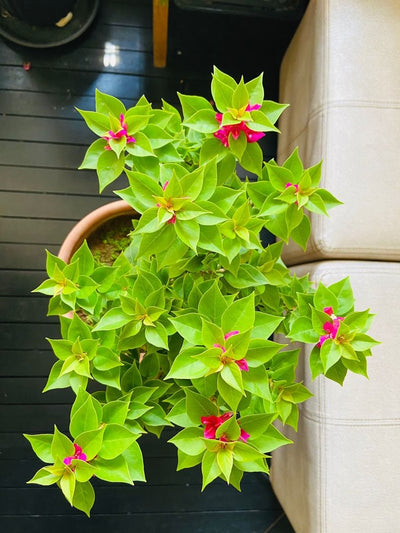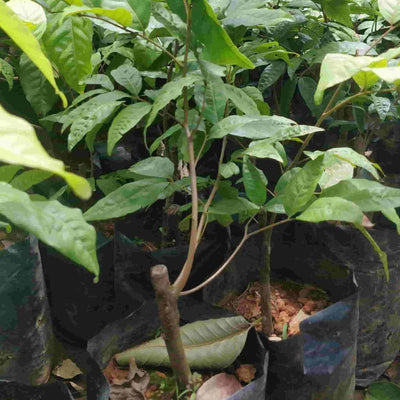Rambutan Fruit Plant
Green Wayanad Agro-Links
SKU: GW0002
Plant Name : Rambutan
Variety : N18
Type : Exotic Fruit
Size : 2 Feet
Variety : N18
Type : Exotic Fruit
Size : 2 Feet
Fruits In : 3 Years
Container Type : Plastic Bag
Container Type : Plastic Bag
Rambutan is the most popular fruit of Southeast Asia. The fruits of rambutan are red to yellow in colour with long hair-like structures, and the edible portion is translucent and juicy.
Rambutan fruits are highly nutritious, being rich in carbohydrates, vitamins, calcium, magnesium and potassium. The rind and the edible portion of the fruits are rich in anti-oxidants which are excellent in fighting against the growth of cancer cells. The fruits are mainly consumed as fresh fruit, though they can also be canned. They are ideal for making jams and jellies.
Rambutan grows well in warm tropical climate. Lands prone to water logging are not good for growing rambutan. Slightly sloped lands are ideal. Budding is the best method for producing high-quality rambutan planting materials. Budlings produce fruits after 2 or 3 years with optimum production occurring after 6 or 8 years, if managed well.
Rambutan is adapted to a warm tropical climate. The tree grows well up to 700 meters above sea-level. It requires around 22–30°C temperatures for optimum growth. It is very sensitive to low temperature and the growth of the plant is severely affected at a temperature less than 100°C. The plant requires good rainfall of 200-500 cm well distributed throughout the year but a short spell of the day period is essential for the initiation of floral bud function. The heavy rainfall during the maturity period causes the cracking of fruits
Rambutan is grown successfully in a wide range of soils. Well-drained sandy loam to clay loam soils with organic matter is most suitable for optimum growth and yield. It is can be grown successfully in red laterite soil if adequate organic and inorganic fertilizers are applied. The optimum soil pH is 4.5 to 6.5. Rambutan is sensitive to waterlogging. The orchard in slight sloppy land has been found performing better.






